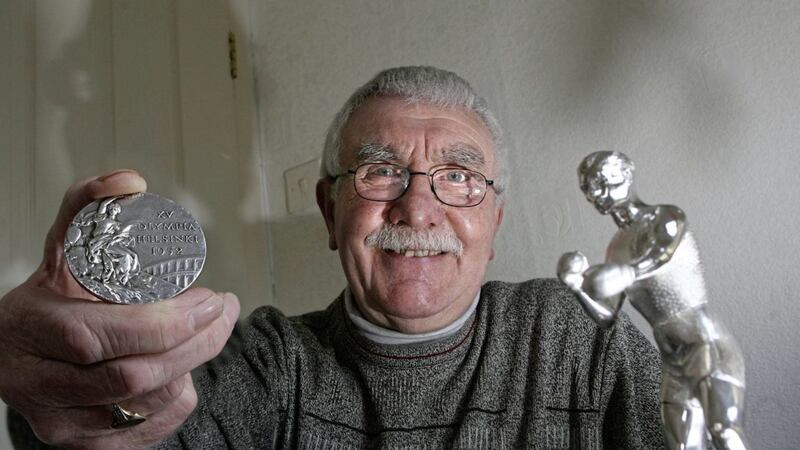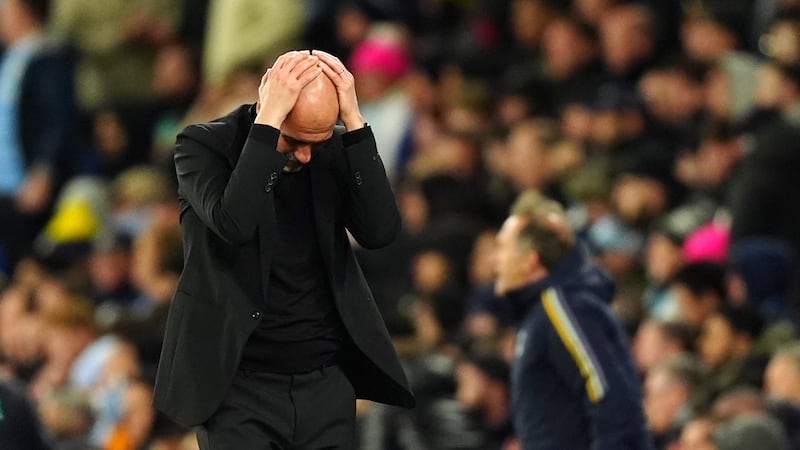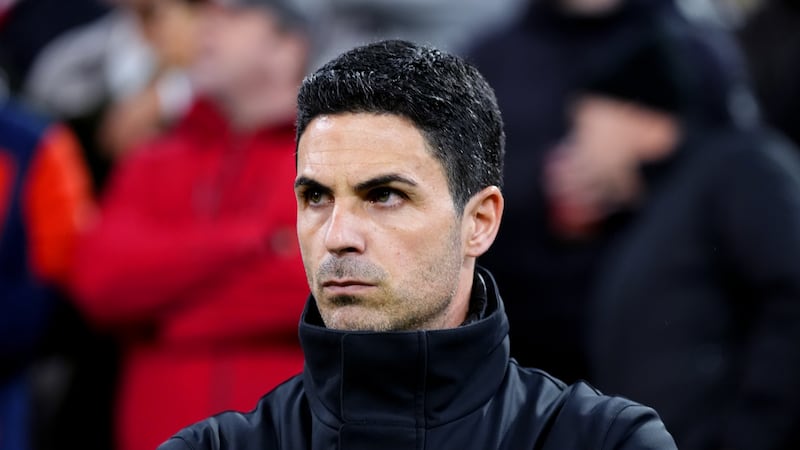IT is the words of the late, great Jimmy Magee that spring to mind as Barry Flynn tries to sum up John McNally’s place in Ireland’s illustrious amateur boxing story.
Belfast historian and renowned author Flynn was there on the January 2008 night when McNally was finally inducted into the IABA’s Hall of Fame. Fifty-six years after landing silver in Helsinki, becoming the first Irish boxer to win an Olympic medal, it was a case of better late than never.
Veteran broadcaster Magee hosted the awards ceremony at the National Stadium and, placing McNally’s achievement in the context of all the success that followed in the decades after, described him as “the pathfinder for Irish boxing”.
“That really summed it up,” said Flynn, whose book ‘John McNally: Boxing’s Forgotten Hero’ brilliantly chronicles McNally’s life and career.
“That award was long overdue. John was only 19 when he went to the Olympics and while he returned to a hero’s welcome, Ireland in the ’50s was much different to how it is now. There was no civic reception, and he didn’t quite get the recognition his achievement deserved.
“Yet four years later, Irish boxers won four medals at the 1960 Olympic Games in Melbourne. People like Gilroy and John Caldwell, what they saw John achieve probably pushed them on in their own careers.
“He blazed the trail and showed everybody else that, no matter how humble your background, you can make a mark on the world stage. John lit the flame for everything that has followed.”
At the age of 89, John McNally passed away yesterday – his place among the immortals of Irish sport assured that famous afternoon in the Finnish capital on August 2, 1952.
Born in 1932 and raised in the Pound Loney area, at the bottom of the Falls Road, McNally first dipped his toes into the fight game as a juvenile with Immaculata before eventually boxing out of the White City club.
His natural talent was clear from the earliest of days, and by 1951 he had laid claim to Ulster and Irish junior flyweight crowns. That put McNally in the frame for a place on the Irish Olympic team – though it was another special night at the National Stadium which cemented his reputation as a star in the making.
“In April that year when he fought a US Golden Gloves champion called Jake Corvino in Dublin,” says Flynn.
“You can actually find clips on British Pathe, and it was a brutal fight. Corvino was tipped to become one of the greatest ever amateurs and professionals, but John beat him and the stadium nearly came down with the cheers.
“That was a real breakthrough moment.”
Confidence through the roof, McNally travelled to Helsinki believing anything was possible. For a young man who had held an ambition to travel Europe, the Olympic Games was a world away from the hardships of post-war Belfast.
After being awarded a bye in the opening round of the bantamweight competition, McNally claimed a unanimous decision win over Alejandro Ortuosto from the Philippines. That moved him through to the last eight, where experienced Italian Vincent Dall Osso lay in wait.
Although few would have picked McNally to progress, he dominated Dall Osso with his left jab to book a semi-final spot, where he would go toe-to-toe with the tough Korean, Joen Kang.
McNally had to deal with some clever attacking in the early part of the contest, but gradually began to assert himself and take command on the way to another victory.
From relative unknown to an Olympic final – it was the stuff dreams were made of.
Unfortunately, though, the gold medal proved elusive as McNally lost a controversial decision to home favourite, Finland's Pennti Hamalainen.
“It was the last day of the Games and the host nation had not yet won a gold medal, so there was a lot of weight on the Finn’s shoulders to deliver,” McNally recalled in Barry Flynn’s book.
“It came down to the three judges - the British judge gave it to me while the American and the Austrian gave it to Hamalainen. I was devastated and in floods of tears because I was convinced that I had won the gold medal.”
Despite the bitter disappointment of that day, McNally remained phlegmatic about the defeat in latter years.
“My philosophy in life has always been to never look back in anger,” he said.
“In retrospect, the experience has stood me in good stead and helped me cope with adversity in later life.
“It was just a dream come true to represent my country in the green vest on a stage such as that and I was never so proud. The honour was something I cherish and always will.”
Such humility characterised the man both in and out of the ring – and he credited a lesson learned from another athlete on the scales for providing perspective as his Olympic journey was about to unfold.
The Egyptian boxer had been on the end of insults from Iranian boxers in the queue for the weigh-in, and when McNally asked how he had ignored the abuse, he responded: “Sir, I will do my talking in the ring and always remember this: when somebody has beaten you, take your hat off to them.
“When you beat somebody, take your hat off to them also - but make sure it fits your head when you put it back on.”
Yet returning to his home city with the silver medal around his neck was an unforgettable moment, as Belfast turned out in force to welcome its new hero.
“I could not believe the numbers who were there to greet me.
“The crowds were so excited that they actually broke through the railings at the station to get to me - it was only then that I realised how significant an achievement it all had been.”
McNally went to the European Championships in Warsaw the year after Helsinki - adding a bronze medal to his Olympic silver – and later in 1953 represented Europe during a tour of the United States, where he was made an honorary Golden Gloves champion after returning undefeated.
As is so often the case, though, the lure of the paid ranks proved a wrong turn in an otherwise groundbreaking career between the ropes. And, after hanging up the gloves at just 28, McNally’s life took a dramatic turn when he embarked upon a successful career as a musician - touring the world with his group, The Freemen.
But it is his exploits between the ropes for which John McNally will always be most fondly remembered – then, now and for many more generations to come.
“John shone like a beacon throughout that summer of ’52,” says Barry Flynn.
“You’ll never take him out of the record books, and he’ll always be there as the first - Irish boxing’s pathfinder.”








